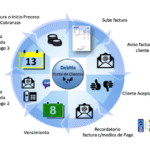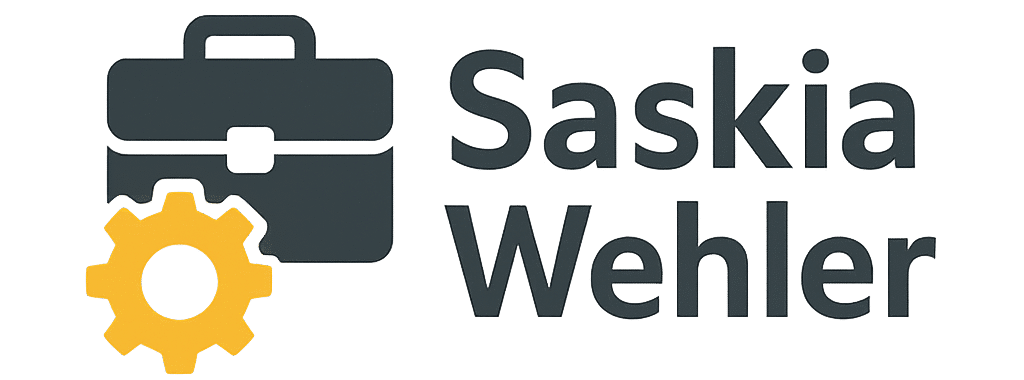The dynamics of a Call Center for Debt Collection are intricate and challenging. These centers serve as the backbone for organizations aiming to manage overdue accounts and maintain financial health. In the current economic landscape, the efficiency of such centers is paramount for the successful recovery of debts.
Understanding the core functions and strategies of a debt collection call center can empower businesses to enhance their collection rates. This article delves into the essentials of how these centers operate and the effective methodologies they employ for debt recovery.
What are the key functions of a call center for debt collection?
A call center for debt collection plays a pivotal role in the financial ecosystem of a business. Its primary functions include reaching out to delinquent account holders, negotiating payment terms, and ensuring timely collections. These tasks are carried out by skilled agents who employ a blend of empathy and firmness to achieve positive outcomes.
The agents are also responsible for maintaining accurate records of interactions, follow-ups, and payment agreements. This necessitates a robust Customer Relationship Management (CRM) system that streamlines the process and provides agents with the necessary information to make informed decisions.
Moreover, the use of predictive dialers has revolutionized the call center’s approach by automating calls and prioritizing contacts based on their likelihood of payment, thereby maximizing the efficiency of the agents’ time.
Furthermore, it’s essential for a call center to stay compliant with the regulations governing debt collection, which adds another layer of complexity to their operations.
The intricacies of managing early-stage debt – typically between one and ninety days overdue – require a strategic approach. By focusing on this window, call centers can prevent debts from escalating into more serious delinquencies.
How to maximize your collection rates with a predictive dialer?
One of the most effective tools in a call center’s arsenal is the predictive dialer. This technology automates the call process, allowing agents to spend more time speaking with customers and less time waiting for connections.

The predictive dialer algorithm analyzes call metrics to predict when agents will be available and dials multiple numbers to ensure a seamless transition between calls. This not only boosts productivity but also significantly increases contact rates.
Additionally, the real-time analytics provided by the predictive dialer enable managers to monitor campaigns and make data-driven decisions that enhance overall performance.
It’s also worth noting that predictive dialers can be integrated with other tools and platforms, such as CRM systems, to provide a comprehensive view of customer interactions and history.
This integration creates a more personalized approach, which is essential for building rapport and encouraging payment resolution.
What are the effective strategies for early debt collection?
Early debt collection is pivotal for maintaining a healthy cash flow. Implementing effective strategies during the initial stages of delinquency can significantly improve recovery rates.
These strategies often involve personalized communication channels, such as emails, text messages, and phone calls, tailored to each client’s preferences and situations.
 Operational staff – collections: functions and strategies
Operational staff – collections: functions and strategiesBy offering flexible payment solutions and establishing a rapport, call centers can foster a cooperative environment that encourages debtors to settle their dues promptly.
Another key strategy is the adoption of a multi-channel approach, which ensures that customers can be reached through their preferred method of communication, thereby increasing the likelihood of engagement.

Let’s not overlook the importance of training and empowering agents to handle early debt collection effectively. They should be equipped with negotiation techniques and an understanding of behavioral cues to maximize successful resolutions.
How to increase agent productivity in debt collection call centers?
Increasing agent productivity is essential for the success of any call center, especially in the high-stakes environment of debt collection. The deployment of advanced technology like AI-driven tools can streamline workflows and reduce manual tasks.
Effective training programs that focus on practical skills and the psychological aspects of debt collection can also enhance agent performance.
Real-time analytics and performance dashboards provide agents and managers with insights into areas of improvement, while gamification strategies can motivate agents by introducing a competitive element to their work.
Incentive programs that reward successful collections can further boost morale and productivity. A supportive work environment that promotes well-being can also help maintain high levels of productivity in the long term.
- Implementing robust training programs
- Using advanced technologies for automation
- Monitoring performance with real-time analytics
- Employing motivational strategies and incentives
- Ensuring agent well-being and support
What are the challenges faced by call centers in debt collection?
Call centers in the debt collection industry face a myriad of challenges, from maintaining compliance with ever-evolving regulations to managing the delicate balance between firmness and empathy when interacting with debtors.
The negative stigma associated with debt collection can also impact the morale of agents, making it crucial for management to provide adequate support and create a positive workplace culture.
Technological advancements, while beneficial, also present challenges in terms of keeping up with the latest tools and ensuring that systems are integrated smoothly for optimal operation.

Data security is another significant concern, as call centers handle sensitive personal information that must be protected against breaches.
Finally, the management of high call volumes and ensuring consistent performance despite fluctuations in demand are challenges that necessitate strategic planning and resource allocation.
What is the role of a collection agent in a call center?
The role of a collection agent in a call center is multifaceted and crucial to the recovery process. These agents are the primary point of contact between the organization and its debtors, tasked with negotiating payment plans and resolving delinquencies.
 From LATAM to Remote USA: crafting a resume that opens doors
From LATAM to Remote USA: crafting a resume that opens doorsAgents must combine excellent communication skills with an empathetic approach, understanding the debtor’s situation while also emphasizing the importance of settling their accounts.
They must be adept at handling objections, offering suitable payment solutions, and maintaining composure in potentially tense situations.
Furthermore, collection agents play a key role in maintaining customer relations, as their interactions can influence a debtor’s willingness to engage with the organization in the future.
In summary, the collection agent’s role is to secure payments while upholding the organization’s reputation and fostering long-term customer relationships.
Related questions about call center strategies for debt collection
What is a debt collection call center manager?
A debt collection call center manager oversees the operations and strategy of the call center. Their responsibilities include ensuring agents meet collection targets, maintaining compliance with legal standards, and implementing processes that optimize productivity.

They also analyze performance data to identify trends and areas of improvement, playing a key role in training development and team management.
What does a collection manager do?
A collection manager’s role involves supervising the collection team, setting targets, and developing strategies to improve debt recovery rates. They work closely with agents to ensure that communication with debtors is consistent and effective.
Collection managers also manage the administrative aspects of the collection process, such as reporting and record-keeping.
What does a debt collection advisor do in a call center?
Debt collection advisors in call centers guide debtors through the process of repaying their dues. They discuss repayment plans, offer financial advice, and work to find mutually beneficial solutions.
Their goal is to help individuals manage their debt while ensuring the company recovers outstanding payments.
What is a call center manager?
A call center manager is responsible for the overall performance of the call center, including the management of resources, technology integration, and the achievement of key performance indicators.
They are pivotal in creating strategies that enhance customer service and agent productivity, working towards the call center’s success.
As we delve into the intricacies of call centers for debt collection, it’s essential to note the role of technology in streamlining these operations. To further illustrate this point, let’s take a look at a video that demonstrates the impact of a predictive dialer in action:

 Download BookVRC case study
Download BookVRC case studyIn summary, the Gestor de Call Center de Cobranza is integral to the success of debt recovery efforts. Through the strategic use of technology, robust training, and effective communication, these call centers can overcome challenges and achieve their financial goals.










